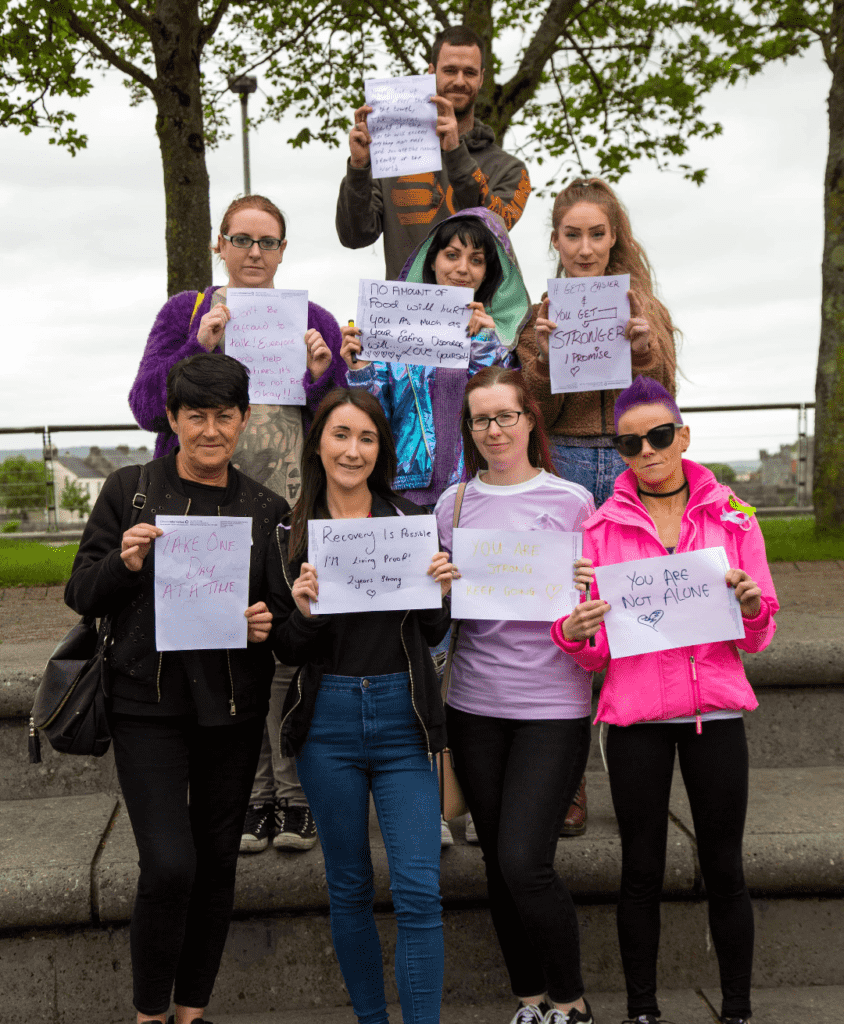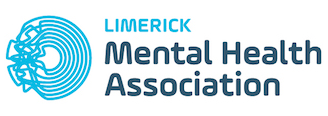Trigger Warning: The following blog post contains personal accounts of eating disorders and suicidal ideation. If you are affected by this blog and need to speak to someone, please contact the numbers below for immediate assistance.
Samaritans freephone: 116 123
Aware helpline: 1890 303302
Pieta House helpline: 1800 247 247
Bodywhys helpline: 1890 200 444 or email alex@bodywhys.ie

Now, at thirty four, after years of mental and physical pain, she is four year into a strong recovery. Karen has launched an awareness campaign for World Eating Disorders Day on June 2nd 2019. To follow her campaign, follow her on Facebook @KarenGould or Instagram @karen.gould.961
Getting a diagnosis
As far back as I can remember, I was always conscious of my weight. I was always on some sort of diet. Looking back now, I can see I displayed many anorexic traits and behaviours. Back then mental health wasn’t something we were educated about. You only heard of eating disorders (EDs) on television or they only happened to famous people.
We were shown a video of a girl speaking about having bulimia in school. I had never even heard of this word before! That night I went home and tried purging after dinner. After a few days the pressure on my body was so huge that I had burst blood vessels in both my eyes. This lead to a GP visit where I admitted what I was doing to him and my parents. Thereafter, I was given my diagnosis of bulimia. I was put on a waiting list to see a psychologist and then sent home.
Life on a waiting list
Over the next few years, I saw multiple psychologists without any positive change; none of them had any experience with EDs. At sixty pounds per session, this was not feasible long-term. Consequently, I became increasingly isolated from my family and friends. This allowed my eating disorder to essentially take me hostage. Believe me when I tell you that living with an eating disorder is overwhelming, exhausting and can have devastating effects on both your mental and physical health. Only by the grace of God did I manage to sit my leaving cert.
Due to purging, after multiple trips to the emergency department with electrolyte imbalance (low potassium), I was referred to Saint Patrick’s Psychiatric Hospital for treatment. Again, another waiting list. There were only private treatments available, I was lucky to have cover on my fathers health insurance plan.
Health deterioration
I waited roughly nine months for a bed in this hospital. Most if this time I spent in Mallow General Hospital; due to various medical complications. Some of the complications of EDs include irregular heartrate, severe dehydration and constipation, low blood pressure, edema, osteoporosis and electrolyte imbalance. These can all in turn to lead to heart failure, tooth loss, gum disease, loss of the menstrual cycle, hair and muscle loss, anemia, gastric rupture and acid reflux disease. I eventually got a bed but let me tell you, becoming an inpatient in a psychiatric hospital as a teenager with zero understanding of mental health was both extremely frightening and overwhelming.
I spent about seven months as an inpatient and then another four as an outpatient, travelling to Dublin daily. On my last day of the programme I collapsed due to low potassium and low blood pressure. An ambulance took me to yet another hospital for treatment and I never heard from St. Patricks again. During my year there I was only weighed twice. Firstly upon entry and secondly shortly before I left. Only then it was clear that me weight had dropped significantly.
The years that followed
I can only describe the years that followed as the ultimate definition of ‘living hell’. I was trying to live with a full on eating disorder with no help or resources available to me. On advice from a psychologist, I changed GP’s and began having my bloods and weight monitored least twice a week. I was diagnosed with depression following a deterioration in my mental health. I stopped sleeping and began self harming, I also had a diagnosis for anorexia. There were many nights I had to sleep in my parents bed because I was too weak to make it upstairs.
We had all visited the church as a family but for me it was a way for me to admit defeat and ask God to take me quickly. I had availed of every service available to me. After being referred to Tevere House in Limerick, things went downhill fast. They handed me a list of medications and sent on my way. Thereafter, I developed a substance abuse problem. This was followed by numerous overdoses (on said prescriptions) and suicide attempts. I had destroyed every relationship in my life.
Seeking treatment again
After my experience in St. Pats, I had vowed to never seek inpatient treatment again. This made it extremely difficult to decide to seek treatment again. It also told me how seriously ill I was. Its important to note that this was only possible again because of my fathers health insurance. Even with insurance, I had to go to St Vincent de Paul for a donation of the one hundred euro assessment fee which they kindly gave me. Lois Bridges assessed me for treatment in their residential care facility. They accepted me after eight months.
During their assessment, I was told that my weight was too low to avail of their treatment. I was sent to hospital for three days in an attempt to reach their required weight; which I did. I learned a lot during this period, but after six weeks it was obvious that I was not progressing. This left me with two options, go to hospital to begin tube feeding or discharge myself, so I chose the latter. I left weighing just four and a half stone and never heard from them again.
Recovery
I had learned valuable information through everything, in particular, the importance of protein in rebuilding muscle loss. Taking high protein drinks is essential in recovery. I kept this up even after I left the hospital. My parents couldn’t watch me destroy myself again so I moved back to Limerick. My Dad got me a puppy to keep me company because by then I had become so isolated from society that my social skills were non-existent. However, slowly but surely I began to go out again; I stopped abusing alcohol and prescription medications. I joined a gym, initially for the wrong reasons but I developed a love for weight lifting. I’m happy and healthy. I am a good person. I deserve happiness after years of suffering. I’m loving every minute of it!
Awareness campaign
Thirteen weeks ago, I had to undergo umbilical hernia repair surgery, my first serious test in my recovery. I was in tears, so anxious about relapse. The general response for my worries was “ah, you’ll be grand” and I decided no, this was simply not a good enough response anymore. People were dismissing my concerns of relapse due to a lack of understanding about eating disorders.
When I had recovered from my surgery, I put all my energy into an awareness campaign in the run up to World Eating Disorders Day on June 2nd 2019. I made seven hundred awareness ribbons, organised training by a mental health service provider called Bodywhys- The Eating Disorder Association of Ireland. Limerick Citizen Information Centre now has information nooks on parental support and treatment available. In order to end the stigma around eating disorders there is still so much to educate people on. If a person has an alcohol abuse problem, they can avail of meeting anywhere in the country throughout a given day. All over the country there are centres in which individuals are reintegrated back into society after appropriate treatment. Why can’t we have these same services? Why is mental health not treated the same?
In conclusion: the facts
Seventy million people worldwide suffer from an eating disorder and one person dies every sixty two seconds from one. Eating disorders have the highest mortality rate of any mental health disorder. They are a brain based biological disease and are definitely not anyone’s fault or choice. Early access to evidence based treatments is extremely important.
Please, please remember that full recovery from an eating disorder is possible, I am living proof of that.
